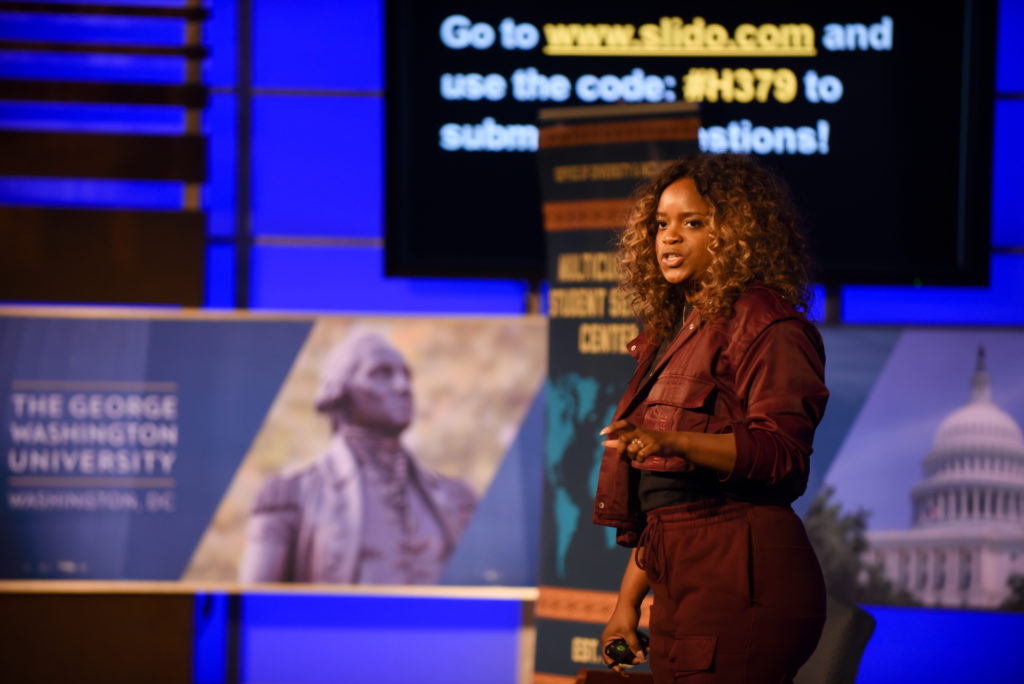An author and co-founder of an organization that aims to end police violence kicked off this year’s Black Heritage Celebration Monday in the Jack Morton Auditorium.
Brittany Packnett Cunningham, an activist who served on President Barack Obama’s Task Force on 21st Century Policing and co-host of Pod Save The People delivered the keynote address at this year’s student-led Black Heritage Celebration, which honors the centennial anniversary of the Harlem Renaissance and received record-high funding from the Student Association.
In case you missed it, here are some highlights:
1. Reclaiming ‘renaissance’
Packnett Cunningham said she struggles with accepting the idea of a black renaissance because the term “renaissance” implies a definite time period that has a beginning and an end – a notion at odds with the idea that black excellence is ongoing and everywhere, not something that reemerges every few decades in a group of individuals with exceptional talent or genius.
“I struggle with describing things as a renaissance as if to say ‘This will end, and these regular blacks will come back,'” she said. “I struggle with the idea that whenever a black person is seen to be doing something bad, then suddenly they’re the rule that applies to all of us, but when we’re excellent and incredible, we’re the exception.”
2. Unlearning oppression
Packnett Cunningham said black individuals must “protect black” by unlearning internalized oppression that causes people to focus on the impact the oppression they feel has on their oppressors, rather than themselves.
She said part of the “challenge” in unlearning oppression is that some black people “weaponize” their privilege across faults like gender and economic status, stymying any sense of community and exacerbating oppression for those of a lower socioeconomic status. She added that the internal cleavages some people choose to create are counterproductive to the ultimate goal of liberating all black people.
“We don’t get anymore free by chaining somebody else up, we don’t get anymore free by only showing up for the black folks like us and not the black folks who aren’t like us,” Packnett Cunningham said. “Protect yourself and protect each other – that’s the only way we’ve been able to make it this far.”
3. Unlearning anti-blackness
Packnett Cunningham said non-black individuals need to become conscious of and counteract racial bias and “anti-blackness” in their own minds, two phenomena she said are universal. She said non-black individuals must move beyond simply being allies of the black community to becoming “co-conspirators” who help the black community advocate and organize.
“You can turn on the news at any given point, you can scroll through Twitter on any given day and you can see that there is a predictable end to this story, that the predictable end is not one of justice,” she said. “The predictable end is not one of liberation, is not one of equity – it’s not one where the oppressed or oppressor are free.”





